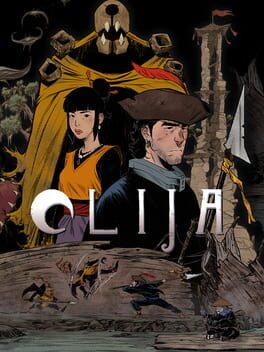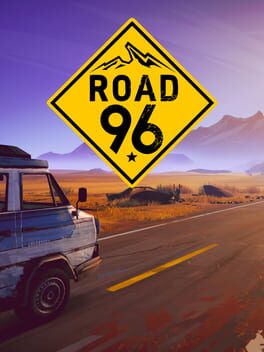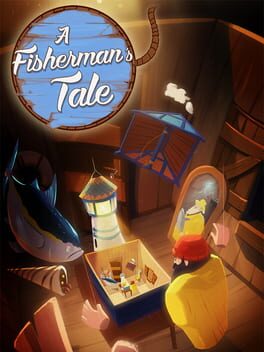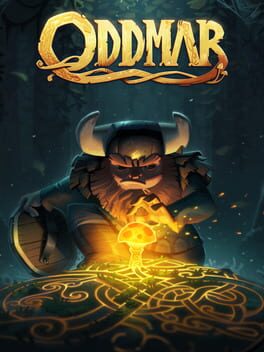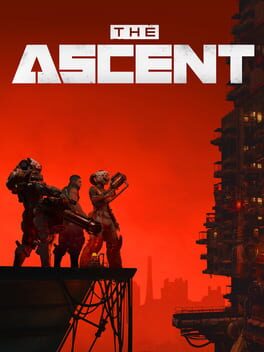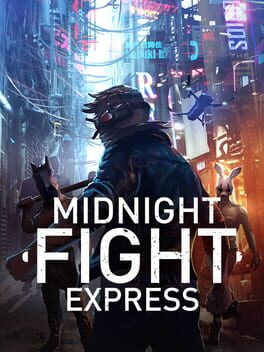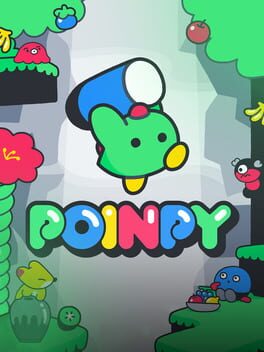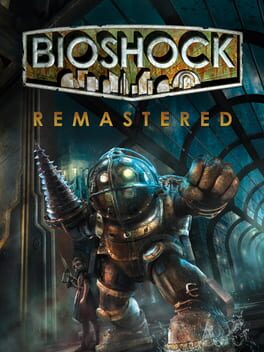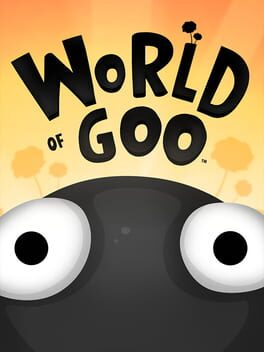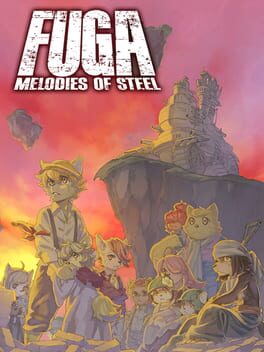MagoDaZueira
2020
One thing i really liked about this one was how the story never felt inadequate or off tone. That is boosted quite a bit by its surreal approach to the worldbuilding, kinda reminiscent from its inspirations (Earthbound and stuff), and this surrealism I like very much. Creating such a cohesive and self-aware story can get pretry hard when you get into the themes like the ones this game does, but it managed pretty well.
The game delivers at almost everything it sets out to do, and if not for a lack of secondary characters development (even though it is not something the game intends to do i think it would be an opportunity to expand on its plot and themes) would be a damn near perfect game for what it tries to be.
The game delivers at almost everything it sets out to do, and if not for a lack of secondary characters development (even though it is not something the game intends to do i think it would be an opportunity to expand on its plot and themes) would be a damn near perfect game for what it tries to be.
2021
The whole presentation part of the game is quite good, from the fitting 8-bit graphics to the excellent animations, but it never delivers upon its promises in anything besides that.
Even though i thought the combat was pretty easy, i’ve never felt like i really “got good” at it, it was satisfactory to play but never evolves upon itself.
This lack of “evolving” (progression if you will) is felt in nearly every part of the game, such as the bland health system, “basebuilding”, which straight up disappears after the first quarter of the game, and even the story, which, even though presented in a way which i enjoy and thought would grab my attention, never did
It is a fairly short game, and as such (adding to the fact i played it via gamepass) wasn’t a complete waste of time, so if you’re interested, you should give it a try.
Even though i thought the combat was pretty easy, i’ve never felt like i really “got good” at it, it was satisfactory to play but never evolves upon itself.
This lack of “evolving” (progression if you will) is felt in nearly every part of the game, such as the bland health system, “basebuilding”, which straight up disappears after the first quarter of the game, and even the story, which, even though presented in a way which i enjoy and thought would grab my attention, never did
It is a fairly short game, and as such (adding to the fact i played it via gamepass) wasn’t a complete waste of time, so if you’re interested, you should give it a try.
2021
This game got two main things going for it: its story and its take on the “adventure” side of games, underexplored by a lot of games that are labelled as such.
The story aspect is mostly based around its strong cast of characters, and one thing i really liked about it was how it portraits stories so personal to each of the people you meet while being cohesive to its whole. This is supported by the devs’ choice of not having a protagonist, per say (this is not even a “silent protagonist” scenario, but multiple random people you control). It is so since, being someone not that relevant to that world, you can dive into the different characters’ tales being almost an observer, a witness of them, which lets the individuality of the characters shine brighter.
Along with that, i notice a very “adventuresque” tone to your various journeys, visible from its setting (the roads) to its gameplay loop. This last one is composed of you trying to manage your money and “health” so you are in good shape through to the end of the journey. This is done through choices you, as the player, gotta make, exploring the game’s systems, in an almost immersive-sim fashion.
This, however, is where there are a couple of misses. I enjoy that feel the game goes for, however, it never opens up in the ways you can interact with it, even though it seems to want to. Such lacking is also noticeable in its story department, which also goes for a similar vibe with choice mechanisms but only, again, superficially. In a similar way to most teltalle games, the choices don’t affect the world around you significantly, which feels like a missed opportunity, since it could be based around its chapters structure, which brings more linearity to its at first seemingly open ended narrative.
Overall, this doesn’t overshadow the game’s strengths, for even though shallow at parts, it felt good to interact with this world during its fairly short length. It delivers on the vibes and the feelsy stuff when it has to, and for that has great aesthetics, soundtrack (omg it is really good), and story, making up for its shortcomes and constituting a pretty intriguing game.
The story aspect is mostly based around its strong cast of characters, and one thing i really liked about it was how it portraits stories so personal to each of the people you meet while being cohesive to its whole. This is supported by the devs’ choice of not having a protagonist, per say (this is not even a “silent protagonist” scenario, but multiple random people you control). It is so since, being someone not that relevant to that world, you can dive into the different characters’ tales being almost an observer, a witness of them, which lets the individuality of the characters shine brighter.
Along with that, i notice a very “adventuresque” tone to your various journeys, visible from its setting (the roads) to its gameplay loop. This last one is composed of you trying to manage your money and “health” so you are in good shape through to the end of the journey. This is done through choices you, as the player, gotta make, exploring the game’s systems, in an almost immersive-sim fashion.
This, however, is where there are a couple of misses. I enjoy that feel the game goes for, however, it never opens up in the ways you can interact with it, even though it seems to want to. Such lacking is also noticeable in its story department, which also goes for a similar vibe with choice mechanisms but only, again, superficially. In a similar way to most teltalle games, the choices don’t affect the world around you significantly, which feels like a missed opportunity, since it could be based around its chapters structure, which brings more linearity to its at first seemingly open ended narrative.
Overall, this doesn’t overshadow the game’s strengths, for even though shallow at parts, it felt good to interact with this world during its fairly short length. It delivers on the vibes and the feelsy stuff when it has to, and for that has great aesthetics, soundtrack (omg it is really good), and story, making up for its shortcomes and constituting a pretty intriguing game.
2019
2015
This game is Yakuza at its peak. It’s got basically perfect gameplay loop for what it tries to be, that is, among all the things you could possibly do in its jam-packed open world, you will have fun, independently of what you choose to do inside it. You can play 10 of the ingenious substories one after the other, just follow the main quest or straight up play minigames for 5 hours, if you so wish. It doesn’t matter, whatever i did in this game was always fun.
Ryu Ga Gotoku struck gold with this one, and even though i don’t think any of the other games are quite as good as Yakuza 0, i’m still glad to see that the subsequent games (Y6, LAD and the Kiwamis) maintained a high quality bar as well, which this game series truly deserves.
Ryu Ga Gotoku struck gold with this one, and even though i don’t think any of the other games are quite as good as Yakuza 0, i’m still glad to see that the subsequent games (Y6, LAD and the Kiwamis) maintained a high quality bar as well, which this game series truly deserves.
2018
Oddmar is a beautiful game in graphics and music, that draws from its influences adapting them quite well in one of the best platforming experiences on mobile.
This aspect of it, and even its graphics, one could say, work this neat because the game is self conscious of it being a mobile game, and as such conveys itself in the best possible way it can to that platform.
It falls short on underutilization of the combat/weapons, which feel floatier than they should, imo, lack of variety and some (even though rare) sections with janky map design, but overall is a really good mobile platformer.
This aspect of it, and even its graphics, one could say, work this neat because the game is self conscious of it being a mobile game, and as such conveys itself in the best possible way it can to that platform.
It falls short on underutilization of the combat/weapons, which feel floatier than they should, imo, lack of variety and some (even though rare) sections with janky map design, but overall is a really good mobile platformer.
2021
This game lacks in a lot of areas. The story is really bland, too dependent on cyberpunk tropes, and the progress is unsatisfactory (money/level ups), with a fair share of unbalanced weapons (which could be a turnoff in a looter-shooter). And, of course, there are also the long sections of just walking around, which i would skip with a taxi had i realized money wouldn’t be a problem whatsoever
I, however, enjoyed playing through it. Its setting and music create a well crafted atmosphere, and the gameplay was fluid, with satisfactory enough combat, and since i didn’t care that much for the story, it was kind of a blast just blazing through it with a podcast in the background
I, however, enjoyed playing through it. Its setting and music create a well crafted atmosphere, and the gameplay was fluid, with satisfactory enough combat, and since i didn’t care that much for the story, it was kind of a blast just blazing through it with a podcast in the background
Games like Midnight Fight Express often try to base their gameplay and progression around a feeling of flow you'd get from fluid/frenetic combat and action.
This game, however, while sometimes delivering that "flow-state", is very inconsistent at that. Instead, most of the time I saw myself finding the section I was going through to be quite a slog. You can see the effects of your time spent on the game and your upgrades when you start beating hordes of enemies with little to no difficulty, but even then there are some sections that feel out of place, breaking up the rhythm.
Sure, the game got a couple of things right, namely its fitting music and fluid combat (which works well when it does hit, though not enough to make the worst levels feel fun to play).
Even then, it's a hard one to recommend, not offering enough in either style, depth of gameplay, or fun moments to make its problems passable. Don't think I'd call it straight up bad, but, at least for me, it didn't reach its existent potential do be a more worthwhile experience.
This game, however, while sometimes delivering that "flow-state", is very inconsistent at that. Instead, most of the time I saw myself finding the section I was going through to be quite a slog. You can see the effects of your time spent on the game and your upgrades when you start beating hordes of enemies with little to no difficulty, but even then there are some sections that feel out of place, breaking up the rhythm.
Sure, the game got a couple of things right, namely its fitting music and fluid combat (which works well when it does hit, though not enough to make the worst levels feel fun to play).
Even then, it's a hard one to recommend, not offering enough in either style, depth of gameplay, or fun moments to make its problems passable. Don't think I'd call it straight up bad, but, at least for me, it didn't reach its existent potential do be a more worthwhile experience.
2022
2016
This is one of the best games ever made.
The atmosphere it creates is... unique. It feels, sounds, and looks different, almost as though one were disturbing the eternal struggle of the dying, though not quite dead yet, rapture, by the mere action of stepping foot onto it.
"It was not impossible to build Rapture at the bottom of the sea.
It was impossible to build it anywhere else.”
Andrew Ryan remains as the perfect ideal of villains of his kind, the heart and soul of rapture, and it is his vigor as opposing to the main character's almost robotic, incomplete, nature, that contributes by the latter third of the game to create some of the most remarkable moments in gaming, when the weight of the story and of the whole city itself crumble down, crushingly, upon you, decadent, while all you can do is strive to prevail
The atmosphere it creates is... unique. It feels, sounds, and looks different, almost as though one were disturbing the eternal struggle of the dying, though not quite dead yet, rapture, by the mere action of stepping foot onto it.
"It was not impossible to build Rapture at the bottom of the sea.
It was impossible to build it anywhere else.”
Andrew Ryan remains as the perfect ideal of villains of his kind, the heart and soul of rapture, and it is his vigor as opposing to the main character's almost robotic, incomplete, nature, that contributes by the latter third of the game to create some of the most remarkable moments in gaming, when the weight of the story and of the whole city itself crumble down, crushingly, upon you, decadent, while all you can do is strive to prevail
2008
This game wasn’t very fun to play. As a puzzle game, it feels outdated, with a lot of design ideas that feel quite weird nowadays (some were probably even considered bad at the time). Also, the puzzles rarely intrigued me or developed ideas i found to be smart ones.
I, however, don’t think playing it was a total waste of time, since it’s interesting to see how games, especially indies, have evolved since then.
I, however, don’t think playing it was a total waste of time, since it’s interesting to see how games, especially indies, have evolved since then.
2022
Immortality has layer upon layer of storytelling, each composed of their own enticing narrative and connected to the others in unimaginably tight ways. On top of that, each of these said layer brings thought-provoking ideas on life and art, especially with well crafted critiques on the latter and its current state.
I loved it.
I loved it.
2019
There isn’t much to say that hasn’t been already, but just wanna say I’m really impressed by how enticing and addicting this gameplay loop gets. I’ve beaten it at around 150h, the longest it ever took for me to finish a game, and I just never grew tired of it. So much so that now I feel like I gotta play the rest of the Personas, SMT and even the spinoffs, because those 150 hours went by so fluidly.
P5R got immaculate vibes, beacause of its characters, music (OMG the music) and overall style, and is truly something unique. Sure, it got flaws, but its vibes just straight up override all of them.
P5R got immaculate vibes, beacause of its characters, music (OMG the music) and overall style, and is truly something unique. Sure, it got flaws, but its vibes just straight up override all of them.
2019
One of the most wholesome games out there, extremely charismatic with its unique 3d pixel art and really funny characters. As far as I’m concerned, the game absolutely nails everything it sets out to do
Playing A Short Hike is, in its entirety, a breath of fresh air, one that is suitable for every situation, even if you don’t think you need said fresh air
Playing A Short Hike is, in its entirety, a breath of fresh air, one that is suitable for every situation, even if you don’t think you need said fresh air
Fuga was, for me, a highly enticing and charming adventure overall. The gameplay loop, for half chunk of the game, worked well, in that, maybe because of its streamlined JRPG structure, every system seamlessly fed into each other.
So yeah, just saying that I really do like this game and can feel all the heart and passion that went into creating it. I had never played a CyberConnect game before, but am now eager to do so. Fuga is unique and brings, for the most part, battles that feels like puzzles while also having great risk/reward and tension/relief gameplay structure. The things this game gets right alone made it worth it for me.
Even with all that, though, I can point out a lot of major things that hinder the overall experience from reaching the full potencial it has.
Starting out the bad stuff, then, I must admit that the game does overstay its welcome, so that after around 10 - 15 hours (beat it at ~20) I started to notice that some of its parts were not working that well anymore. Its difficulty, while engaging at first, was, at a certain point, completely overcome by my finding of optimal strategies, and even though I continued to iterate and experiment upon some different party combos, the challenge just wasn't there anymore, and the battles started to feel unnecessarily long and repetitive, for my solution to most of them was kinda same, even more due to a certain degree of repetition of skills across party members.
The intermissions were interesting, but after the point when the game started to drag out more there were not a lot of incentives for me to keep up the micromanaging of resources (namely AP) I set out to do doing at the start of my run.
This part also circles back to the battles, in which at a certain point I had like almost 20 high SP recovery items which, even when using lots of highly SP-consuming skills, I only had to use 1 or 2 of per chapter. This, too, reduced the necessity of a stronger strategy, and with that the stakes of the battles were also diminished, which in turn affected the stakes of the overarching war story in general. I ended up dying only once throughout the entirety of the game, at the beginning/middle of it, because of some dumb decisions I made in a fight, since I didn't have enough familiarity with the fights to understand the streamlining process of each of them yet.
Speaking of stakes, there is the soul-cannon, and while it seems to be a cool idea on the surface, the thought of using it never crossed my mind, since I faced no hardships that would lead me to. If the cannon were in the game simply as tone-setter or stakes-elevating mechanism, it would be ok, I'd just choose to never use it and matters would be settled. The problem is that, much like in Mass Effect 3 where, because of the suicide mission at the end of 2, there would be no way of the devs building a strong story centered around its characters since half of them could have straight up died in the last game, they effectively didn't, here in Fuga any of the characters could be shot out of the cannon and died at any moment. This complicates things, since there are close to none deep character development because of that, those being left out for "link events" during the intermissions, which (even though I didn't see all of them) usually are filler and don't bring much new things to the table, while the main story could, if more fleshed out.
All of that, though, didn't break the game at all for me. The combat kept being fun at times, even after the 15 hour mark, and the longer battles were not such a slog since I had podcasts on in the background during most of them at that point. I still think it is worth playing through, and still believe it is an 8 out of 10 game, a great one, stopped from reaching the peaks it could because of a handful of problems.
So yeah, just saying that I really do like this game and can feel all the heart and passion that went into creating it. I had never played a CyberConnect game before, but am now eager to do so. Fuga is unique and brings, for the most part, battles that feels like puzzles while also having great risk/reward and tension/relief gameplay structure. The things this game gets right alone made it worth it for me.
Even with all that, though, I can point out a lot of major things that hinder the overall experience from reaching the full potencial it has.
Starting out the bad stuff, then, I must admit that the game does overstay its welcome, so that after around 10 - 15 hours (beat it at ~20) I started to notice that some of its parts were not working that well anymore. Its difficulty, while engaging at first, was, at a certain point, completely overcome by my finding of optimal strategies, and even though I continued to iterate and experiment upon some different party combos, the challenge just wasn't there anymore, and the battles started to feel unnecessarily long and repetitive, for my solution to most of them was kinda same, even more due to a certain degree of repetition of skills across party members.
The intermissions were interesting, but after the point when the game started to drag out more there were not a lot of incentives for me to keep up the micromanaging of resources (namely AP) I set out to do doing at the start of my run.
This part also circles back to the battles, in which at a certain point I had like almost 20 high SP recovery items which, even when using lots of highly SP-consuming skills, I only had to use 1 or 2 of per chapter. This, too, reduced the necessity of a stronger strategy, and with that the stakes of the battles were also diminished, which in turn affected the stakes of the overarching war story in general. I ended up dying only once throughout the entirety of the game, at the beginning/middle of it, because of some dumb decisions I made in a fight, since I didn't have enough familiarity with the fights to understand the streamlining process of each of them yet.
Speaking of stakes, there is the soul-cannon, and while it seems to be a cool idea on the surface, the thought of using it never crossed my mind, since I faced no hardships that would lead me to. If the cannon were in the game simply as tone-setter or stakes-elevating mechanism, it would be ok, I'd just choose to never use it and matters would be settled. The problem is that, much like in Mass Effect 3 where, because of the suicide mission at the end of 2, there would be no way of the devs building a strong story centered around its characters since half of them could have straight up died in the last game, they effectively didn't, here in Fuga any of the characters could be shot out of the cannon and died at any moment. This complicates things, since there are close to none deep character development because of that, those being left out for "link events" during the intermissions, which (even though I didn't see all of them) usually are filler and don't bring much new things to the table, while the main story could, if more fleshed out.
All of that, though, didn't break the game at all for me. The combat kept being fun at times, even after the 15 hour mark, and the longer battles were not such a slog since I had podcasts on in the background during most of them at that point. I still think it is worth playing through, and still believe it is an 8 out of 10 game, a great one, stopped from reaching the peaks it could because of a handful of problems.

